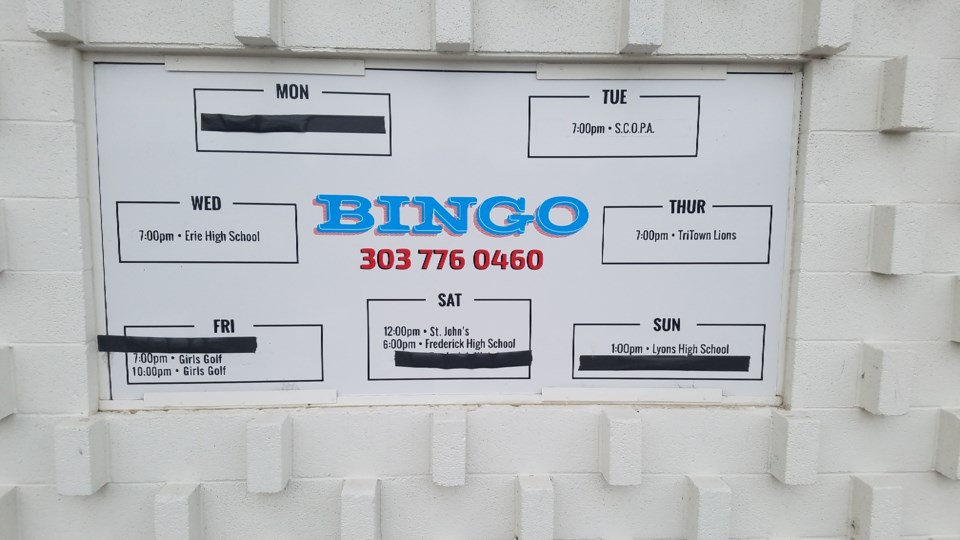J. D Parker began pumping new life into the 28-year-old Longmont Bingo Alley after he and partner, Diane Clark, bought the sagging business two years ago. Parker promoted the daily specials on Facebook and in daily texts.
He also invited the area’s nonprofits into the bingo hall to help with their fundraising efforts. It all seemed to be working, Parker said, as new younger faces began showing up for a chance to take home progressive jackpots as high as $10,000.
The payouts are a bargain considering players can pay $5 to $7 for a packet to play for two hours, Parker said.
“We can bring seniors and young players into play because it’s inexpensive fun for everybody,” he said.
Then COVID-19 hit and all those newly engaged groups, including high school and youth groups, stayed at home to avoid the pandemic, he said.
Now, Parker is looking to Amendment C for a permanent boost for the Longmont Bingo Alley and other bingo halls across Colorado.
“Amendment C will help us out immensely,” he said. “I really think this will keep us thriving.”
“There is so much going on with other entertainment options and we are trying so hard to revitalize bingo in Longmont,” Parker added. “Anything helps.”
Amendment C supports nonprofit fundraising by updating rules for bingo raffles and makes it easier for nonprofits to raise money, according to the Colorado Charitable Bingo Association.
Bingo as a fundraising tool is in a death spiral, which has big implications for some nonprofits, according to a news release from the bingo association.
In the 1980s, there were 49 bingo halls in Colorado and the industry produced $129 million in revenue. Today there are 11 bingo halls and the industry is producing $23 million, the news release stated.
Charities are turning away from bingo because it is volunteer intensive, and it is extremely difficult to recruit and retain volunteers given the restraints placed on the licensees through the Colorado Constitution, according to the bingo association.
Amendment C would make important changes to support nonprofit and charitable organizations, according to the association. Those include:
- Reducing the waiting time for obtaining a bingo/raffle license from five years after nonprofit establishment to three years.
- Permitting volunteers or workers to be compensated up to the minimum wage limit.
- Allowing members from different associations to help manage bingo games for other nonprofit associations.
The proposed changes would make it easier for nonprofits to retain help to run bingo games, said Alfrieta Trumbla, Longmont Bingo Alley’s manager.
“It’s so hard to get volunteer callers to come back every week to work games,” Trumbla said. “It disrupts the flow of games and doesn’t make regular players happy.”
Established in 1992, the Longmont Bingo Alley has been serving regular and new bingo players at the same location for 28 years, Trumbla said. “It’s been a great gathering place for friends and groups hoping to raise a little money. It’s been a community benefit.”
The first group to use the bingo alley as a fundraiser was the Tri-Town Lions Club, said Nancy Martinez, who was among those involved in the initial session.
“Our group is small, but through it all, we have returned game after game,” Martinez said. “This is still the most reliable place for us to raise money. It just keeps going for us.”



